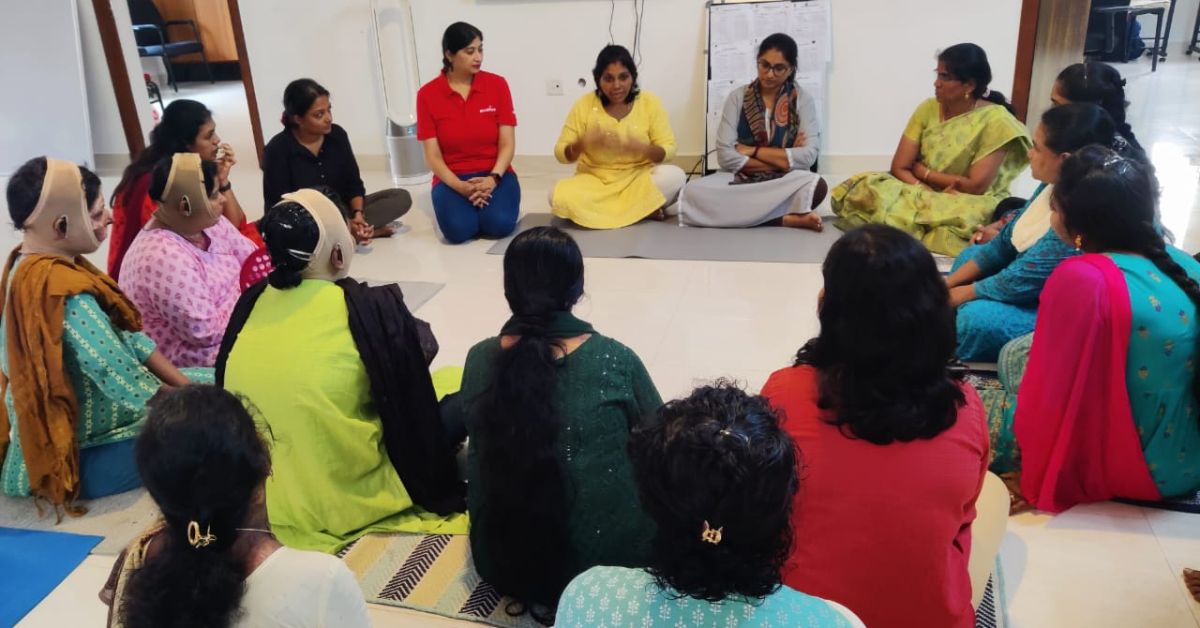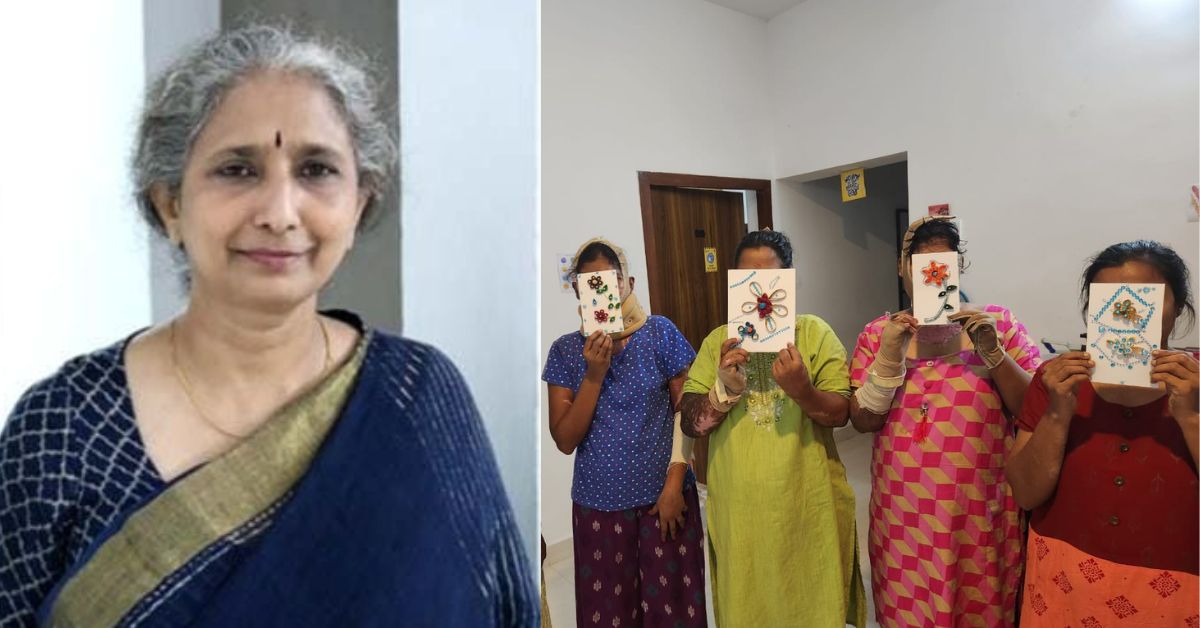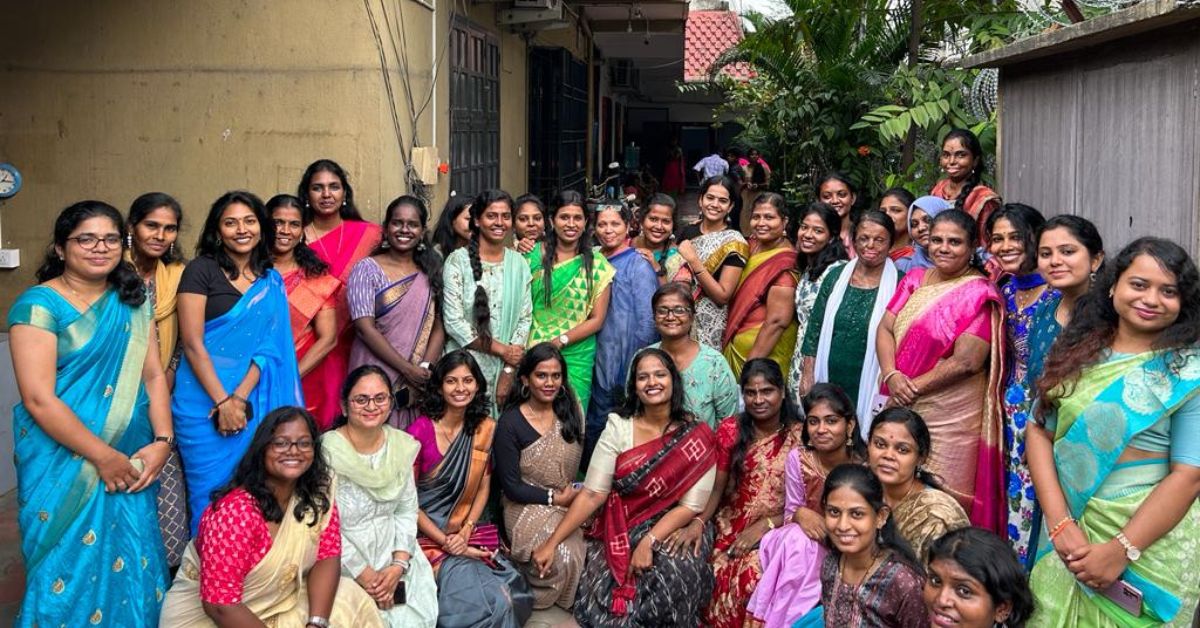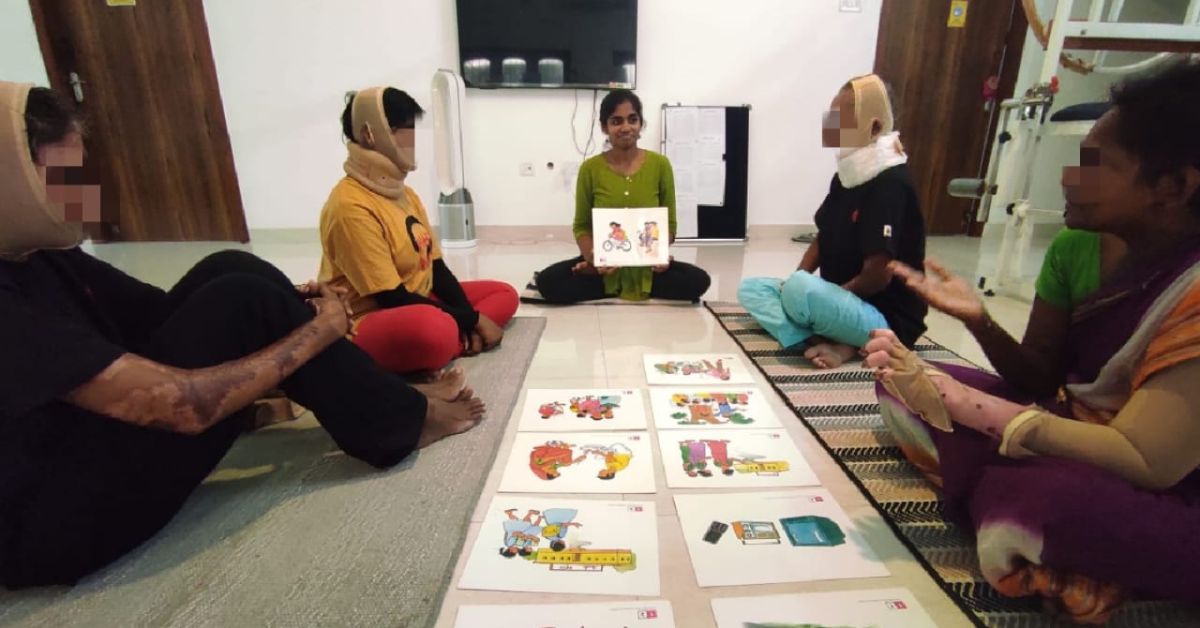Trigger warning: Mentions of sexual abuse, suicide, violence
In 2006, Chennai-based Ambika got married to the love of her life, only to discover the dark truth behind his charming facade. What began as a happy union turned into a nightmare, as she found herself trapped in a cycle of abuse and neglect.
The first six months of marriage seemed promising until she uncovered her husband’s alcohol addiction. Despite reaching out to her parents for support, Ambika was met with indifference and told to endure her chosen life partner’s destructive behaviour. “He would not only beat me but also force himself on me daily,” she recalls.
As the years went by, the abuse escalated, and Ambika found herself struggling to make ends meet for their two daughters. “He stopped paying rent for our home and would not even give me money to buy milk for our six-month-old child,” she adds.
Her husband’s refusal to provide financial support left her burdened with the sole responsibility of sustaining their household. She started balancing a demanding job at a book-binding company and caring for her two daughters. While she was pushed to her limits both physically and mentally, the violence at home didn’t stop.
This continued for eight years until one day: “I asked him to pay at least for the groceries, but he started beating me. I cried myself to sleep but as soon as I woke up the next day, he again started beating me. I was exhausted of this life,” says Ambika, adding that that was when she decided to end her suffering by taking her own life.
“I poured some kerosene on me and set myself on fire. When my neighbours saw me burn, I was rushed to the hospital. I sustained 34 percent burn injuries on my body. The scars were deep. Even now I have burn marks on my right parts of the body,” she recalls.
Sadly, Ambika’s story of suffering domestic violence is just one among many.

According to the National Family Health Survey-5 (NFHS-5), one in three ever-married women in India experiences physical, sexual, or emotional abuse from their husbands during their lifetime. The violence often results in severe injuries — including eye trauma, sprains, dislocations, burns, deep wounds, and broken teeth or bones.
Despite this horrifying cruelty, many cases go unreported, with only 14 percent of women seeking help to stop the abuse. A majority of women are discouraged from reporting such incidents.
Ambika too was suggested to continue to endure the sufferings. But she chose to leave her abuser. “What hurt me more was that society still supported him and blamed me for leaving him. My neighbours suggested I remain quiet and not file a case against him and continue to endure the pain,” she adds.
But with the help of a Chennai-based non-profit, the International Foundation for Crime Prevention and Victim Care, Ambika underwent surgery and therapy to heal both physically and emotionally. Today, she is rebuilding her life and works as a welfare officer with the same organisation. As a single parent, she is raising her two daughters and dreams of a country where they are safe and treated with dignity.
We sat with the NGO’s founder Prasanna Gettu who explained ways to create safer environments for women in India.
Five ways to make India a better place for women
In the late 90s, Prasanna went to Japan to pursue a post-doctorate diploma in victimology. During her time there, she deepened her understanding of victim support and visited various victim assistance centres across the country. Upon returning to India, she established experimental victim assistance centres in Chennai.
“While working in Japan, I observed how women actively sought support for domestic violence. In contrast, India lacks adequate support services, including shelters, counselling, and legal aid for survivors,” she notes, adding, “It is high time we rethink our society’s approach to women’s safety and well-being.”

So in 2001, she decided to start an organisation – the International Foundation for Crime Prevention and Victim Care – dedicated to women seeking domestic violence support. The organisation runs a 24×7 helpline and provides immediate support to survivors through its 11 one-stop centres established in each district of Tamil Nadu.
Through her advocacy, Prasanna aims to empower survivors, educate the community, and work towards creating a society where violence is not tolerated, and all individuals are treated with dignity and respect.
She suggests five ways to foster a culture of respect, equality, accountability, and a society that can work towards preventing domestic violence.

1. Break the intergenerational cycle of crime
Prasanna says that whatever the situation, the spouse should not resort to heinous ways. “It is not acceptable at all,” she shares.
“A home is a place where you are expected to be loved and cared for. Children in such families are also affected as they are silent witnesses to the crime. Growing up, they assume that’s what normal life is about. When such kids date or are in live-in relationships, they express love and anger in ways they learn from their own homes,” says Prasanna.
“Every family must take responsibility — in how we communicate at home, how we raise our children, and how we ensure equality in the upbringing of both girls and boys. The way parents argue and shout in front of children matters. Otherwise, this behaviour risks becoming an intergenerational cycle of violence, where children grow up to become perpetrators themselves. We need to break this cycle,” Prasanna points out.
2. Teach children about respectful relationships
She highlights the importance of education in combating domestic violence.
“There’s a certain attitude that normalises violence. To change it, we must focus on education,” Prasanna says.
“Schools can play a very big role in educating kids about respectful relationships through specially designed programmes. Schools can also help hold perpetrators accountable by organising programmes that make them understand the impact and the damage they inflict on their families,” she adds.
3. Do not treat domestic abuse survivors as cheap labour
At times, people reach out to Prasanna offering jobs such as taking care of senior citizens at their homes, working as domestic helpers, or stitching bags for a living.
“But not all survivors of violence can stitch bags for a living. If a survivor decides to leave the perpetrator and become financially independent to take care of herself and their children, we cannot tell them that you can be a source of cheap labour,” she says.

She adds, “We don’t believe in this. Every individual has their own strengths. Opportunities should be offered to them based on that strength. If they want to be educated, we should encourage them to finish their education.”
4. Sensitise the local officials
“We need to sensitise police and other support systems. If cases of domestic violence or sexual violence are informed to them, they need to respond with utmost care and urgency. It is not like dealing with regular crime,” opines Prasanna.
5. Support your neighbours experiencing abuse
Besides government officials, Prasanna believes it is our shared responsibility to not turn a blind eye to such crimes.
“Often, when these incidents happen, neighbours feel it’s not their place to intervene. However, it is everyone’s duty to offer support. We need to organise programmes and discussions that actively involve community members in decision-making and foster a collective effort to tackle these issues,” she says.
For assistance, you can contact Prasanna through the Dhwani National Domestic Violence Hotline at 1800-102-7282 and her website.
Edited by Pranita Bhat; All photos: Prasanna Gettu.

No comments:
Post a Comment